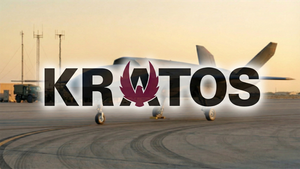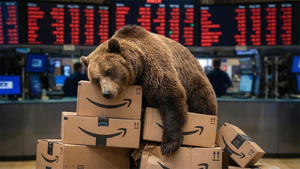35 of Leading Global Commodity Trading Firms and Food Manufacturers currently piloting platform; Former CEOs of Glencore Agriculture and Bunge join as investors and board members
AMSTERDAM, July 28, 2022 (GLOBE NEWSWIRE) -- Vosbor, the first digital marketplace for global trade in bulk agricultural commodities, today announced a new $7 million Seed round led by Lux Capital with participation from Market One Capital, FJ Labs, 7percent Ventures, Athos Capital and Nucleus Capital. Vosbor also unveiled its flagship trading platform, which connects trading firms and end users across markets in a secure and transparent environment. The platform is currently being piloted by 35 of the leading companies in the agricultural commodity trade. Vosbor also revealed that industry heavyweights Chris Mahoney, former CEO of Glencore Agriculture and Soren Schroder, former CEO of Bunge, are co-investing and have joined the company’s team.
“The agricultural commodity trade — the backbone of our global food supply — still takes place offline, although more than $30 trillion in physical commodities and otc derivatives is transacted every year,” said Maarten Elferink, CEO of Vosbor. “Vosbor brings the agricultural commodity trade online, allowing buyers and sellers to trade more efficiently, simplifying risk management in a world where supply chain risks are mounting, and providing market data unavailable today to enhance decision-making. We make commodity trading cheaper and markets more accessible. In addition, we’re working on new derivatives that will give retail investors a better opportunity to participate in commodity markets, while lowering basis risk for industry participants — farmers, traders, millers, crushers and manufacturers alike. Farmers especially stand to gain, as worldwide there are few who make use of futures to hedge price risk today.”
“By digitizing the agricultural trade, Vosbor is effectively taking the first critical step in alleviating the threats to global food security, as existing offline markets are inadequate to build systemic resilience,” said Peter Hébert, co-founder and managing partner of Lux Capital. “Vosbor’s vision is bold and they're led by an exceptional team capable of transforming vast commodity markets. Lux Capital is honored to be a part of Vosbor’s journey and we are eager to work closely with the team to ensure its long-term success.”
Traders perform a vital role in getting food from surplus to deficit regions
Much of our food — as well as the animal feed and other inputs which become the food we eat — is produced far from where it is consumed. Most countries are not self-sufficient and rely on imports for food, the Netherlands included. They depend on several breadbaskets such as the U.S., Brazil, Russia, and Ukraine that produce more crops than they consume domestically. When exports from these countries are disrupted, the problems quickly cascade, as evidenced by the global food crises of 2008 and 2011, and again today. However, agricultural commodity prices were already at record highs, well before the war in Ukraine severely exacerbated the situation — largely driven by the impact of climate change.
Climate change is affecting agriculture worldwide, as increasing water-scarcity, rising temperatures and extreme weather events have already diminished harvests in numerous countries. The US, Canada and Brazil went through extreme heat and drought last year, pushing up prices for corn, wheat, coffee and peas among other crops. Across the globe, farmers will nevertheless need to grow more, because demand will continue to increase. Our planet will have to feed an additional two billion people by 2050 and another 1.5 billion by the end of the century, the UN forecasts. Average global crop yields are increasing too slowly to meet that demand, while urbanization and underinvestment in agriculture complicate this further. Worse, recent crop modeling by SEI and NASA have shown that the yields of crucial crops are declining, with corn yields — the most widely grown crop in the world, which together with rice and wheat contribute to ~50% of daily human energy requirements — potentially falling by 24.2% to 27.2% by the end of the century as a result of climate change.
“Trading companies are crucial in navigating supply and demand imbalances, as they swiftly move commodities around the world from surplus to deficit regions,” said Soren Schroder, former CEO Bunge Ltd. “Not only shipping them around the globe, but also storing, processing (milling for example) and consuming them (in feed production for instance). They bring enormous efficiencies to the market. Without traders, global food security would not exist — especially under market conditions like we have today. However, this doesn’t mean there is no room for improvement. From the coffee you drank this morning, the wheat in your muffin to the palm oil in your toothpaste or the livestock feed needed for your milk — most of it is still traded over the phone, executed by email, made binding with various hard copy contracts and involved many different intermediaries. This results in high operational costs, complex execution and little market data to enhance decision-making.”
Vosbor is intent on changing that. To learn more and book a demo, please visit www.vosbor.com.
About Vosbor
Founded in 2019, Vosbor is the first digital marketplace for global trade in bulk agricultural commodities. The recently launched platform allows buyers and sellers to connect, communicate and trade corn, wheat, soybean, palm oil and 14 other agricultural commodities in a transparent and secure environment. Vosbor is based in Amsterdam with additional offices in Singapore. It is backed by leading VCs including Lux Capital, Market One Capital, FJ Labs, 7percent Ventures, Athos Capital and Nucleus Capital.
To learn more, please visit vosbor.com.
Katie Helander
katieh@bulleitgroup.com





